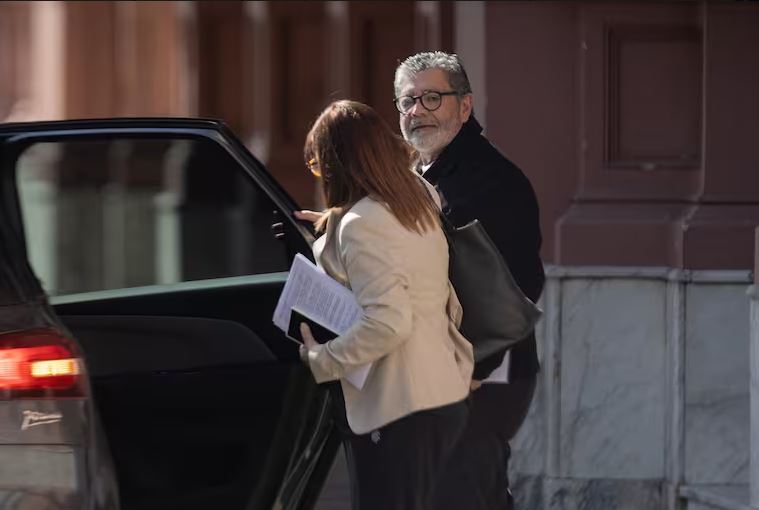
A few hours after the so-called May Council met, the Government decided to move forward at full speed with the labor reform. Despite the warnings from the union centers and the tense atmosphere within the negotiation table itself, the Casa Rosada confirmed that on December 9 it will send the project to Congress. That same day, according to what pro-government officials and PRO deputy Cristian Ritondo told different media, they will announce the full text of the rule that the Executive intends to approve in 2026. The chosen date is due to the fact that from December 10 to 31, the extraordinary sessions of Congress will be enabled where the Government will first try to approve the 2026 Budget project.
However, it was a meeting marked by tension. The meeting, headed by Manuel Adorni in his role as Chief of Staff, was also attended by the Minister of Deregulation, Federico Sturzenegger; the governor of Mendoza, Alfredo Cornejo; Senator Carolina Losada; Ritondo himself; the head of the UIA, Martín Rappallini; and Martínez as the only union representative.
The CGT representative at the table, Gerardo Martínez, before entering and leaving the Casa Rosada, raised questions against the Government and its labor reform plan. “Talking about a labor reform in Argentina is an unusual and unprecedented fact and one that the CGT is in no way going to accept”.
He also warned that “If we are not listened to or attended to and they seek to structurally break the established rights, surely the CGT will make a definition.”remarked the leader. For those who understand it, a few words: the CGT still does not have a definition. Despite the challenging tone, the trade unionist left an open door regarding his support for the project, stating that he will wait to know the fine print before defining whether or not the labor union will support the initiative, suggesting that the criticism is not yet definitive.
There is still one more meeting of the Council prior to the publication of the final project to finalize what the main guidelines will be. Among the axes discussed are real attacks to historical achievements of workers at an individual and collective level such as the right to strike, union organization, elimination and cap on severance payments, flexibility and increase in working hours, the ultra-activity of collective agreements, among others.
The magnitude of the labor reform and its rejection forced the Government to relegate other issues initially included on the Council’s agenda, such as pension reform and the redistribution of co-participating funds, for the moment.
Until now, the CGT has committed to its role as negotiator of the reform, within that small table, knowing that the interests of the UIA, employers, together with La Libertad Avanza, the PRO and some allied governors are coming for an enormous cut in rights that will expose workers to greater exploitation and poverty. There is no thread that benefits the popular sectors in the council, or wherever, as has been shown.
While the Government is betting on negotiations behind closed doors, the conviction is growing that only sustained mobilization will be able to confront a reform that threatens to destroy historical labor rights. Preparing now, demanding that union leaders call for real forceful measures and building a movement capable of stopping these policies is not only urgent: it is possible. to. The combative sectors are already beginning to meet and move to set up a front to fight against the labor reform and all the attacks.
Source: www.laizquierdadiario.com

